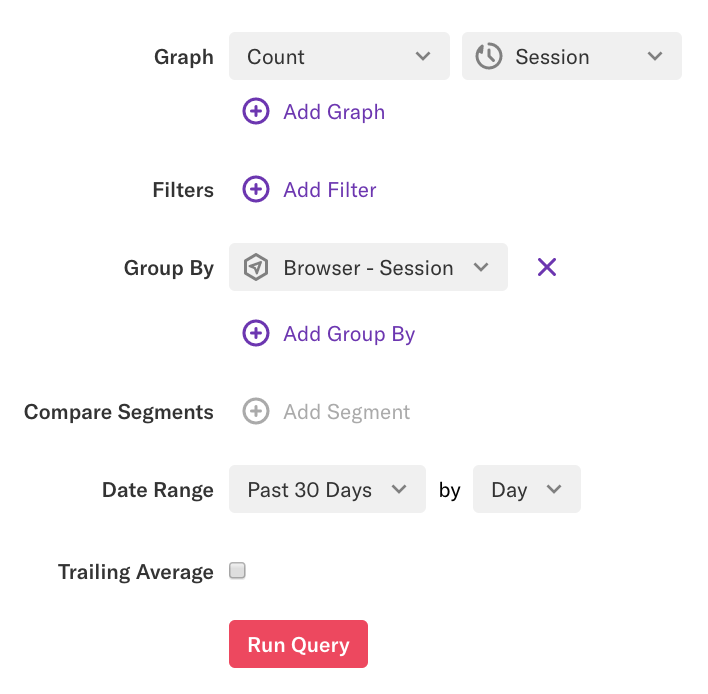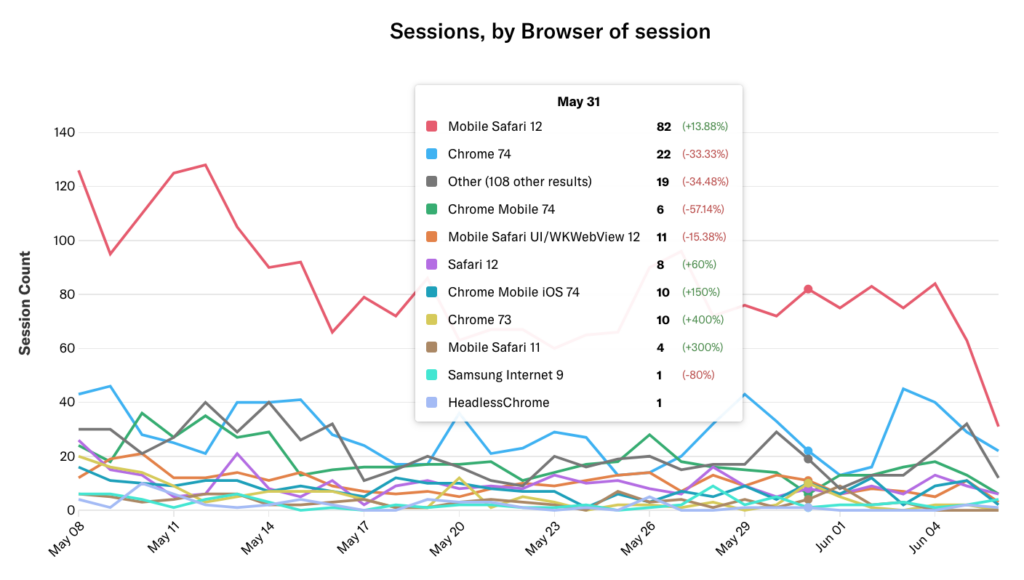Safari ITP 2.2
What updates in this version impact Heap?
Heap is not impacted by Safari ITP 2.2 because we use first-party cookies, not third-party cookies. The shortened window for the expiration of cookies only applies to first-party cookies used to track users across domains. When installed on your website, Heap only tracks traffic that happens on your website’s domain.
How will this impact my Heap data?
Your Heap data will not be impacted.
What can I do about Safari ITP 2.2?
If you have already taken the steps provided below to update for Safari ITP 2.1, no changes are needed to update for Safari ITP 2.2.
Safari ITP 2.1
What updates in this version impact Heap?
While older versions of Safari’s Intelligent Tracking Prevention (ITP) feature have focused on third-party cookies (mostly used by advertisers), The 2.1 update also impacts first-party cookies used by analytical tools such as Heap.
With Safari ITP 2.1, all persistent client-side cookies, i.e. persistent cookies created through document.cookie, are capped to a seven-day expiry. This is a big change from the previous 2 year expiry for first-party cookies. After seven days, cookies will expire and be removed from the browser. ITP 2.1 is now live starting with Safari 12.1 (desktop) and iOS 12.2 (mobile).
For more details, see Apple’s release notes.
How will this impact my Heap data?
Non-identified users using Safari who come back to your website or app more than 7 days after their previous visit will be considered new users. A new user ID will be generated because there will be no previous sign of activity from this user from their cookies. As a result, you might see:
- Inflated counts of unique users on Safari compared to other browsers
- Limited historical data for unidentified users
This will not impact:
- Users who visit your website/app within 7 days of their previous visit. Even if they are not identified, we will continue to link their behavior to a single user ID in Heap.
- Identified users, no matter how long their period of inactivity is. Once users are identified, or if they identify again no matter how long ago their previous visit was, our Identify API will merge their past sessions and event activity with the existing Heap user with that identity.
What can I do about Safari ITP 2.1?
You can take the following steps to update Heap for Safari ITP 2.1:
1. Measure the impact of Safari ITP 2.1 on your traffic
Use Heap to see what percentage of your traffic (web and/or mobile) comes from Safari. A simple way to do this is to set up a Usage over time chart and group by browser.


Also, keep in mind that this release mostly impacts businesses with infrequent traffic, such as a holiday eCommerce shop. If your users tend to visit your website or app regularly (once a week or more), then cookies will be renewed at each new visit, so the impact will be minimal.
2. Use the Identify API as much as possible
Because Safari ITP 2.1 will only impact unidentified users, make sure you use the Identify API whenever you have a permanent, canonical identity available. Even if a user is identified later in the session, we will merge their data with their previous data for a full behavioral dataset.
3. Compare trends across browsers
A good way of knowing whether your Heap data is impacted by Safari ITP 2.1 is to compare trends across browsers directly in Heap. If you’re seeing significant differences between Safari and other browsers, it is very likely due to this release.